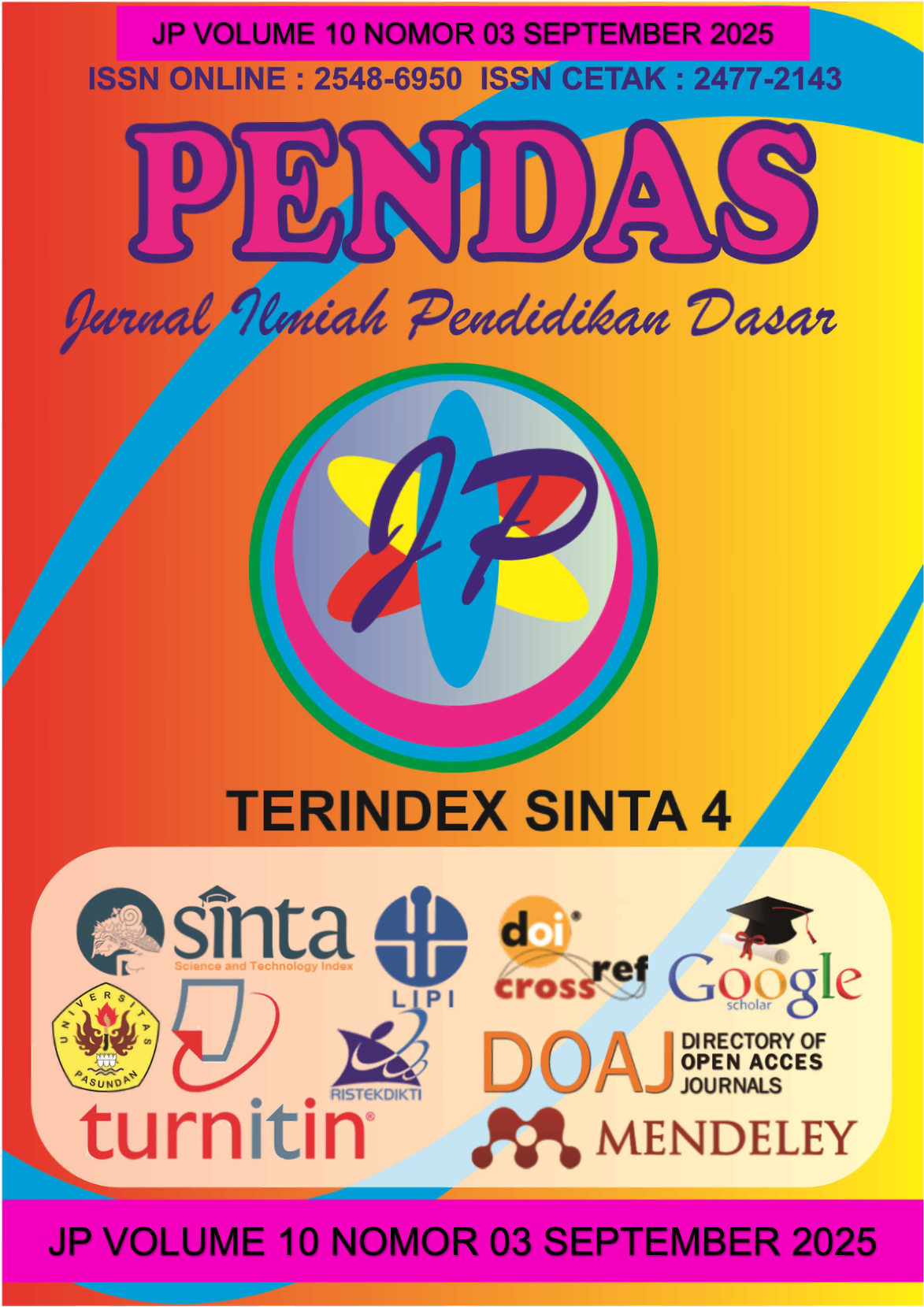Hubungan Mindset dengan Self-Efficacy Pada Mahasiswa Magang di Ruang Belajar Aqil
DOI:
https://doi.org/10.23969/jp.v10i03.31551Keywords:
Mindset, Self-Efficacy, Growth Mindset, Counseling, Internship StudentsAbstract
ABSTRACT
This study examines the relationship between mindset and self-efficacy among student interns at Ruang Belajar Aqil using a quantitative correlational approach. Data were collected through questionnaires from purposively selected student interns. The instruments used consisted of a mindset questionnaire developed by the researcher based on mindset indicators and a self-efficacy questionnaire. Data were analyzed using a Pearson correlation test. The results showed a positive and significant relationship between growth mindset and self-efficacy. This finding provides important insight into the role of mindset in shaping students' self-confidence during their internship assignments. Students with a growth mindset tend to have a high level of self-efficacy in completing tasks, overcoming challenges, and adapting during the internship program. This finding emphasizes the importance of strengthening growth mindset as a strategy, which can be supported through counseling services, in improving student interns' self-efficacy.
Downloads
References
Bandura, A. (1997). Self-efficacy: The exercise of control (Vol. 604). Freeman.
Bandura, A. (2012). On the functional properties of perceived self-efficacy revisited. In Journal of management (Vol. 38, Issue 1, pp. 9–44). Sage publications Sage CA: Los Angeles, CA.
Di Battista, A., Grayling, S., Hasselaar, E., Leopold, T., Li, R., Rayner, M., & Zahidi, S. (2023). Future of jobs report 2023. World Economic Forum, 972–978.
Dweck, C. S. (2006). Mindset: The new psychology of success. Random house.
Dweck, C. S. (2017). From needs to goals and representations: Foundations for a unified theory of motivation, personality, and development. Psychological Review, 124(6), 689.
Dweck, C. S., & Yeager, D. S. (2019). Mindsets: A view from two eras. Perspectives on Psychological Science, 14(3), 481–496.
Harefa, A. (2010). Terapi pola pikir tentang makna learn, unlearn, dan relearn. PT Gramedia Pustaka Utama.
Kartikasari, M. M. (2020). Rr. Nanik Setyowati Maya Mustika Kartikasari Siti Maizul Habibah.
Lestari, S., Adira, N., & Mukminin, G. U. (2024). Eksplorasi Growth Mindset pada Mahasiswa. Jurnal Psikologi Insight, 8(1), 73–80.
Pajares, F. (2002). Gender and perceived self-efficacy in self-regulated learning. Theory into Practice, 41(2), 116–125.
Safitri, Y., & Syofyan, R. (2023). Pengaruh Pengalaman Magang dan Future Time Perspective terhadap Kesiapan Kerja Mahasiswa Fakultas Ekonomi Universitas Negeri Padang. Jurnal Pendidikan Tambusai, 7(1), 3857–3865.
Schunk, D. H., & DiBenedetto, M. K. (2020). Motivation and social cognitive theory. Contemporary Educational Psychology, 60, 101832.
Schwarzer, R., & Jerusalem, M. (1995). Generalized self-efficacy scale. J. Weinman, S. Wright, & M. Johnston, Measures in Health Psychology: A User’s Portfolio. Causal and Control Beliefs, 35(37), 3–82.
Yeager, D. S., & Dweck, C. S. (2012). Mindsets that promote resilience: When students believe that personal characteristics can be developed. Educational Psychologist, 47(4), 302–314.
Zimmerman, B. J. (2000). Self-efficacy: An essential motive to learn. Contemporary Educational Psychology, 25(1), 82–91.
Downloads
Published
Issue
Section
License
Copyright (c) 2025 Pendas : Jurnal Ilmiah Pendidikan Dasar

This work is licensed under a Creative Commons Attribution 4.0 International License.



















